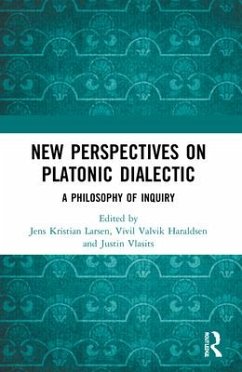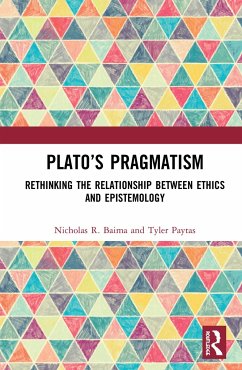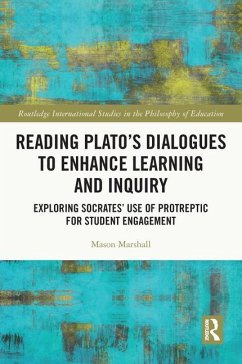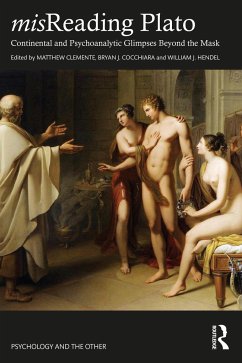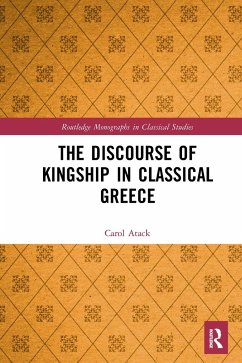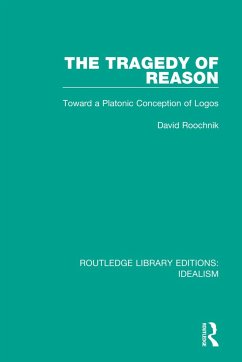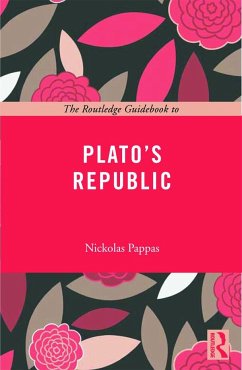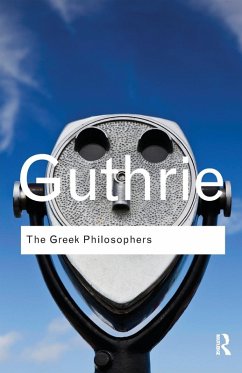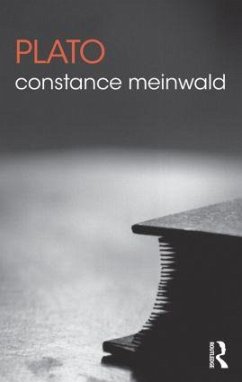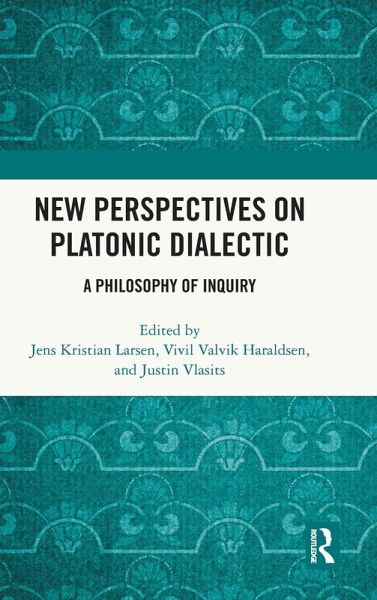
New Perspectives on Platonic Dialectic
A Philosophy of Inquiry
Herausgegeben: Larsen, Jens Kristian; Haraldsen, Vivil Valvik; Vlasits, Justin
Versandkostenfrei!
Versandfertig in 6-10 Tagen
154,99 €
inkl. MwSt.
Weitere Ausgaben:

PAYBACK Punkte
77 °P sammeln!
For Plato, philosophy depends on, or is perhaps even identical with, dialectic. Few will dispute this claim, but there is little agreement as to what Platonic dialectic is. According to a now prevailing view it is a method for inquiry the conception of which changed so radically for Plato that it "had a strong tendency ... to mean 'the ideal method', whatever that may be" (Richard Robinson). Most studies of Platonic dialectic accordingly focus on only one aspect of this method that allegedly characterizes one specific period in Plato's development.This volume offers fresh perspectives on Plato...
For Plato, philosophy depends on, or is perhaps even identical with, dialectic. Few will dispute this claim, but there is little agreement as to what Platonic dialectic is. According to a now prevailing view it is a method for inquiry the conception of which changed so radically for Plato that it "had a strong tendency ... to mean 'the ideal method', whatever that may be" (Richard Robinson). Most studies of Platonic dialectic accordingly focus on only one aspect of this method that allegedly characterizes one specific period in Plato's development.
This volume offers fresh perspectives on Platonic dialectic. Its 13 chapters present a comprehensive picture of this crucial aspect of Plato's philosophy and seek to clarify what Plato takes to be proper dialectical procedures. They examine the ways in which these procedures are related to each other and other aspects of his philosophy, such as ethics, psychology, and metaphysics. Collectively, the chapters challenge the now prevailing understanding of Plato's ideal of method.
New Perspectives on Platonic Dialectic will appeal to scholars and advanced students interested in Plato, ancient philosophy, philosophical method, and the history of logic.
This volume offers fresh perspectives on Platonic dialectic. Its 13 chapters present a comprehensive picture of this crucial aspect of Plato's philosophy and seek to clarify what Plato takes to be proper dialectical procedures. They examine the ways in which these procedures are related to each other and other aspects of his philosophy, such as ethics, psychology, and metaphysics. Collectively, the chapters challenge the now prevailing understanding of Plato's ideal of method.
New Perspectives on Platonic Dialectic will appeal to scholars and advanced students interested in Plato, ancient philosophy, philosophical method, and the history of logic.




